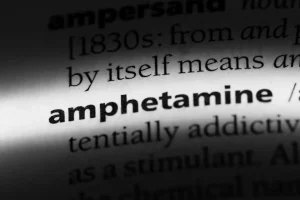
Overall, the less you drink, the more energetic and youthful you will feel. Feeling better inside almost always means looking better on the outside. For example, a 2018 study found that light drinkers (those consuming one to three drinks per week) had lower rates of cancer or death than those drinking less than one drink per week or none at all. Dehydration also affects https://ecosoberhouse.com/ your skin and nails, leaving them brittle and cracked, Volpicelli said.
Alcohol Interrupts Your Body’s Healing Processes
- If you’re someone that is a heavy drinker, chances are you have begun noticing changes to your body over time.
- Alcohol misuse and alcohol-related harms are also increasing among this population, and at a faster rate for women than men.
- Excessive alcohol use can have other visual and non-visual adverse effects on the body that can cause premature aging.
- You might find that alcohol use further limits an already-tight budget, deepens your sense of grief, or accelerates a physical or mental health condition.
- Doctors recommend that most adults over 60 not drink alcohol.
Anyone struggling with alcohol abuse or addiction is welcome in our alcohol addiction treatment program. Our dedicated team of professionals is here to guide and support you in your addiction recovery journey, laying the foundation for long-term sobriety and alcohol and aging relapse prevention. You might not think knocking back drinks can weaken your bones over time, but alcohol may damage your skeletal health and accelerate bone aging. Alcohol prevents your body from properly absorbing bone-strengthening nutrients such as calcium and vitamin D. Less nutrient absorption coupled with more calcium being flushed out through frequent urination deprives the bones of what they need to stay healthy.
Skin Changes from Liver Disease
- Alcohol crosses the blood brain barrier, which plays a role in its depressive and addictive effects.
- Look for local volunteer opportunities that interest you.
- After an episode of heavy drinking, your liver processes some of the alcohol you consumed.
- The idea of having a drink to relax before bedtime may not be a good one, especially as you get older.
Contact us to find out how we can help you navigate the path to recovery and optimize your physical and mental health. Depriving yourself of adequate sleep can make you age faster. If you’re aging faster than you would otherwise, you’re also increasing your risk of age-related health problems. At Lifetime Recovery in Mullica Hill, New Jersey, we can help you or a loved one suffering from alcohol abuse recover with our winning treatment solutions, and become free from the cycle of addiction. An aging parent might push back on the idea that they have a drinking problem. They might say that they know what’s best for their health.

How Alcohol Affects Your Face
With age comes wisdom, but even older adults can be caught off guard by a drinking problem. However, you can always take steps to adopt a healthier relationship with alcohol. The first step is to learn about common reasons for drinking, signs of excessive drinking, and the unique risks alcohol poses to older adults. Older people Oxford House are more sensitive to the sedative (sleep-inducing) effects of alcohol, as well as its effects on balance, coordination, attention, and driving skills. This puts older adults at higher risk for falls, car crashes, and other injuries that may result from drinking.

After drinking too much, you might feel guilty about your lack of self-control. You might also regret things that you said or did while intoxicated. You might find yourself wanting a drink even at inappropriate times.

However, it’s crucial to understand what constitutes drinking alcohol in moderation. According to health guidelines, moderate drinking is generally defined as up to one glass per day for women and up to two glasses per day for men. Excessive levels of alcohol consumption can lead to health risks, including addiction and liver damage. While moderate drinking may have mood-enhancing effects, excessive or chronic alcohol consumption is linked to an increased risk of mood disorders, anxiety, and depression. It’s essential to practice mindful drinking and seek professional help if you notice any negative effects on your mental well-being.
